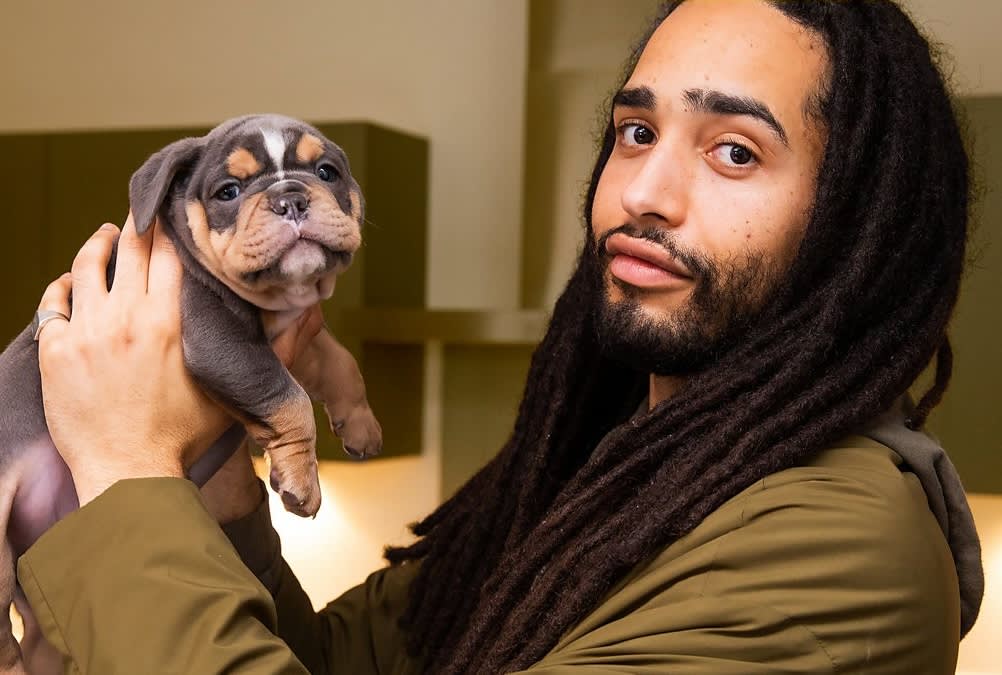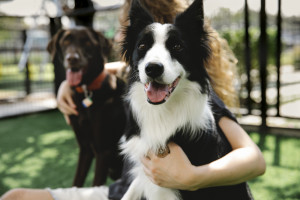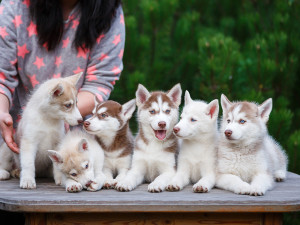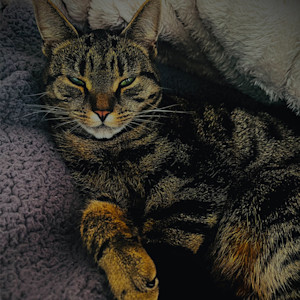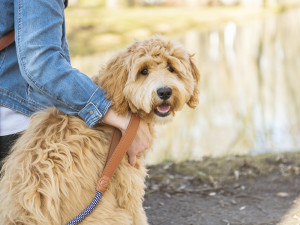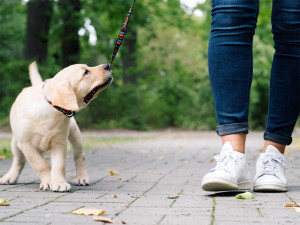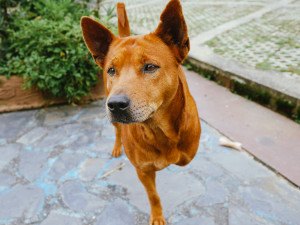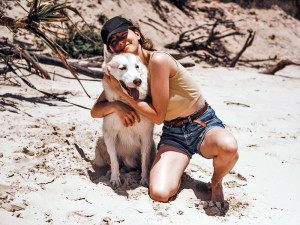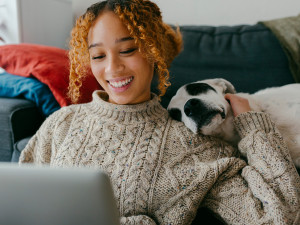BBC Documentary Highlights The Sobering Repercussions Of Covid’s Puppy Boom
”It’s the commodification of animals, it’s social currency – whether it’s to look hard or manly or to emulate a celebrity. We put pressure on that dog to play a role in our lives”
During the height of Covid, some puppies were being sold for tens of thousands of pounds. Four years later, the repercussions of the boom in breeding so-called ‘fashionable’ dogs – Bullies, French Bulldogs, Dachshunds – are all too clear to see. It’s a huge cause for concern for vet Dr Fabian Rivers, so much so that he made a BBC documentaryopens in new tab about it Britain’s Puppy Boom: Counting The Cost back in 2021. Now, he’s updated the doc for 2024 and it serves as a sobering account of what really goes in in the world of puppy buying and breeding.
In the film, Dr Rivers meets animal welfare experts to quiz them on good breeding practice, attends an XL Bully meet-up to discover their allure (footage is from before they were banned), and sends an undercover reporter to a dog fertility clinic where footage reveals animals being mishandled – including a brutal-looking artificial insemination that makes for shocking viewing. He also meets people becoming breeders to make money from their pet dogs – spoiler alert: profit isn’t guaranteed and you can seriously risk your pup’s health.
According to a survey by Dogs Trust, more than a third of new owners do absolutely no research before they get a dogopens in new tab, so the documentary follows a couple just starting out on their journey – educating themselves as they go from wanting to buy a Dachshund pup to fostering a completely different breed. It’s a wild ride and highlights the need for any prospective pup owner to educate themselves on whether they’re ready for the responsibility of a pup and, if they decide that they are, researching which type of dog is right for their lifestyle. We sat down for a chat with Fabian (aka @dreadyvetopens in new tab) to see how the people buying into dog ‘trends’ has played out.
Why is the documentary back onlineopens in new tab now?
The documentary is a warning at the start point of a pretty horrendous time – financially with the cost of living crisis, and so on. Fast forward three years, and the things that we’d said potentially were going to be around the corner are here in full effect. The documentary shows where it starts – now we’re in the thick of it.
One piece of legislation that’s changed since the documentary first came out is the ban on XL Bullies…
We had a spate of dog attacks – some were fatal. These attacks were all over the tabloids, and people were rightly concerned. But this was used as a political piece by then home secretary Suella Braverman. We have a political landscape that’s hostile – the ban is essentially scapegoating a group of people. The veterinary community, the British Veterinary Associationopens in new tab, Dogs Trustopens in new tab and many animal welfare centric bodiesopens in new tab have all been saying that instead of a ban, we need education. Banning breeds doesn’t have a positive outcomeopens in new tab.
What’s the problem with the ban on XL Bullies?
It’s nurture, not nature. No matter what dog you have, if they’re designed to go for a long run, make sure you take them for a long run. You can create a situation where any dog, pretty much, has a positive outcome in terms of behaviour.
The other thing, XL Bullies aren’t actually a breed. They’re a crossbreed with four or five different breeds – Pit Bulls, Mastiffs and so on – so almost impossible to define. This legislation is riddled with holes and contradictions. Ultimately, the ban has nothing to do with welfare – of animals, vets or the wider community – it’s the mass culling of a group under the guise of something human-friendly.
On a wider level, why doesn’t banning dogs work?
The focus always shifts to another dog. At one point it was Staffies, then German Shepherds and Dobermans and Rottweilers – whatever’s the flavour of the month. As soon as the XL Bully ban came into force in January 2024, a regional newspaper reported that in their local area, online searches for Rottweilers and Cane Corsosopens in new tab went through the roof.
It’s a theme that comes up in the documentary – do you think people buy puppies as status symbols?
We consider ourselves a nation of animal lovers, but if we investigate that, in reality people want dogs to fit their status. What dog you choose is a mark of who you are. It’s the commodification of animals, it’s social currency – whether it’s to look hard or manly or to emulate a celebrity. We put pressure on that dog to play a role in our lives. And this is how it goes forwards. The people who were buying XL Bullies now want Cane Corsos. Then they’ll breed them and sell them and make money from that puppy that they bought for £4,000.
Do you think people are still breeding XL Bullies?
Definitely. People always find ways to dance that legal line. It wouldn’t surprise me if people are breeding XL Bullies but making them smaller or outcrossing them with other breeds like Rotties.
In the documentary you looked at puppies for sale for thousands – a French Bulldog for £30k! – has the cost of living crisis knocked prices down?
Prices have gone down – people can’t afford them anymore. But fertility clinics (where dogs are artificially inseminated) still exist and there’s money to be made. People want pups. There’s listings for Huskies and Cane Corsos. People want guard dogs or dogs that fit their social media image. It’s how the world works – it isn’t just dogs, it’s fast fashion. Dogs have a similar role to fast fashion in people’s lives. We’ve seen that in more sales and the quality going down – it follows in the same way that dogs are being handled and bred.
Like fashion, dogs are treated as trends. Has the ‘trend’ for Frenchies reached its peak?
I work all over Birmingham and I see loads of Frenchie pups. Frenchies aren’t going anywhere. I also see loads of Dachshund pups – all the breeds we looked at in the documentary. A recent studyopens in new tab showed that Frenchies have the shortest lifespan of any other breed – just four and a half years! But people are willing to ignore that.
They have this romanticised view of what dogs should be. When you modify animals, to the extent we have, it means they don’t have any space to be anything but the version of reality that we’re happy with. As a result, there’s more inbreeding and breeders cut corners – it’s catastrophic. You can see the family line that French Bulldogs come from and you’ll see the same dog four or five times spread across different halves of the same family tree – one of their parents is also an uncle. Apply this to anything that wasn’t somehow socialised to be OK, and you’d be like “this should be illegal”.
Are there any new issues in the breeding community since the documentary originally came out?
A primary concern is the level of misinformation – and attempts to villainise the veterinary community. Vets used to be seen in society in the same way doctors were, that what we said was gospel. Now people are much more willing to question and do their own research when it comes to veterinary intervention. Breeding communities are front and centre on this and, as a result, we’re seeing more anti-vaxxer sentiment, which is fuelling an increase of disease.
Do you feel any hope for the future of breeding?
I don’t feel hopeful. I’m a proponent of ‘adopt don’t shop’. I refuse to engage in buying another animal. But rescues are resistant to giving people dogs when they’ve asked for X, Y and Z – there is a certain process that needs to be followed. One thing that splits opinions is that some people – like myself – feel that if a rescue centre has decided that you’re not an appropriate home or person or situation for this particular dog, you should take that advice. Others take the approach that if you want a dog, you should have access to it. While I understand that thought process, for me, it’s entrenched in this idea that if I want something, I’m entitled to it. I don’t think that when it comes to living animals – sentient, intelligent beings – that just because you want something, you should have it. Therein lies the problem. Having a dog isn’t a right. What we should be doing is addressing the animals that already exist in this world, not bringing others in via breeding.
Britain’s Puppy Boom: Counting The Costopens in new tab is back on iPlayer now
